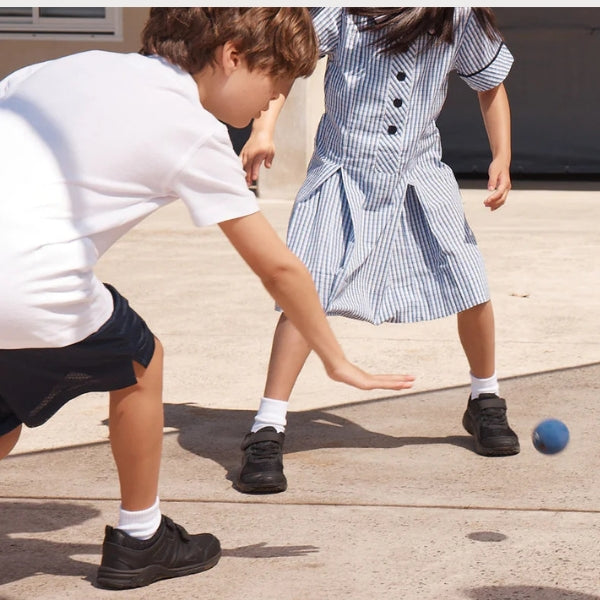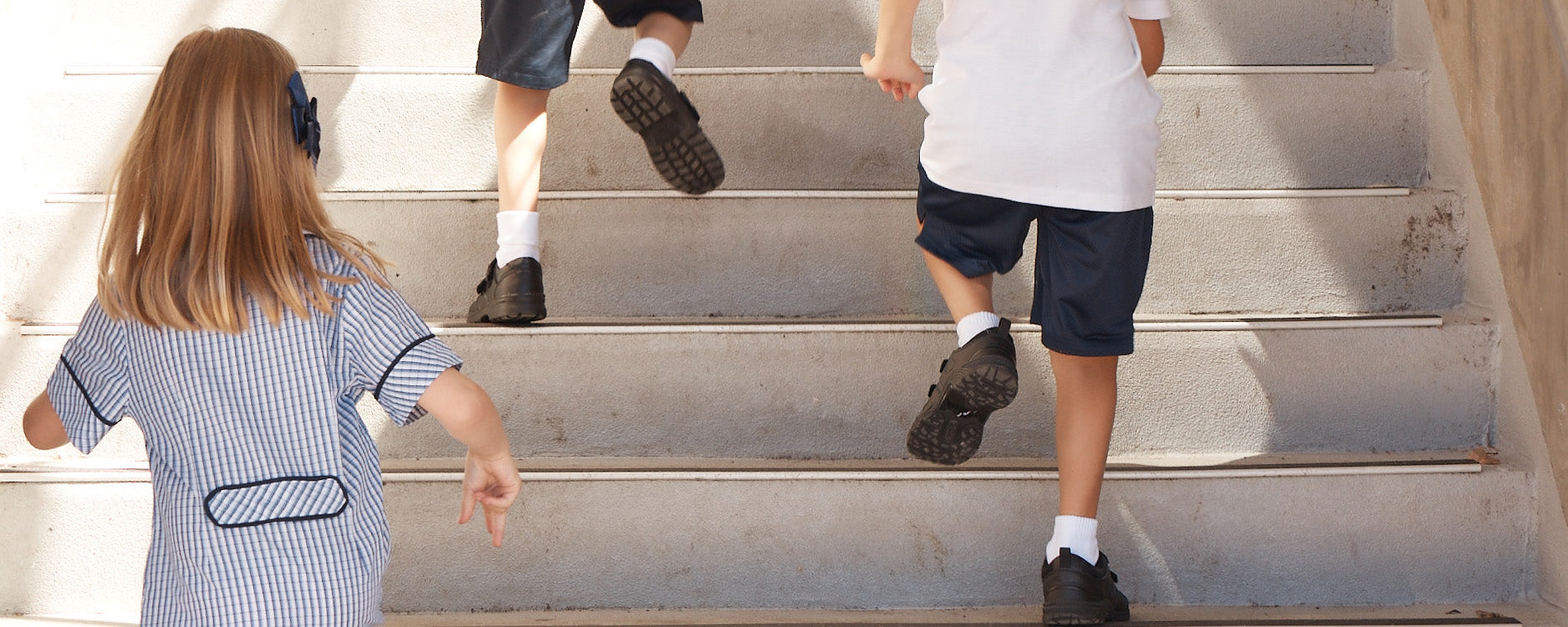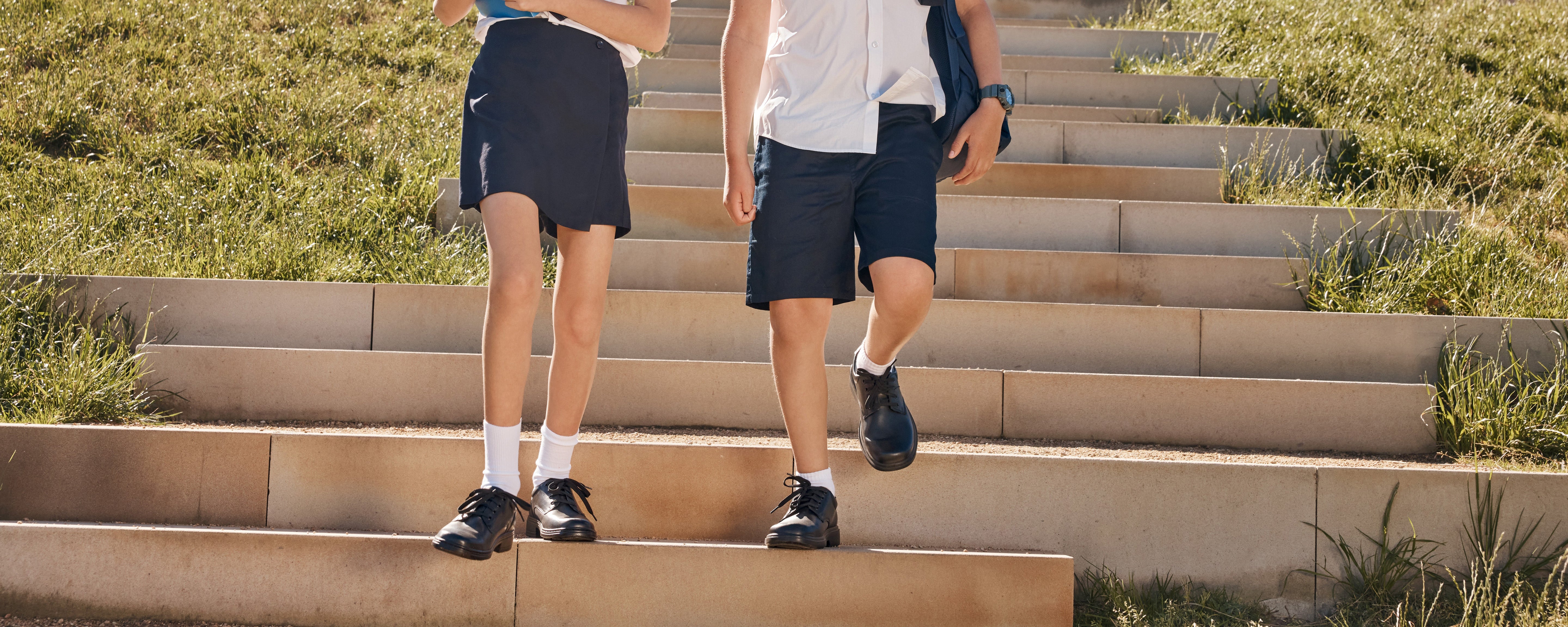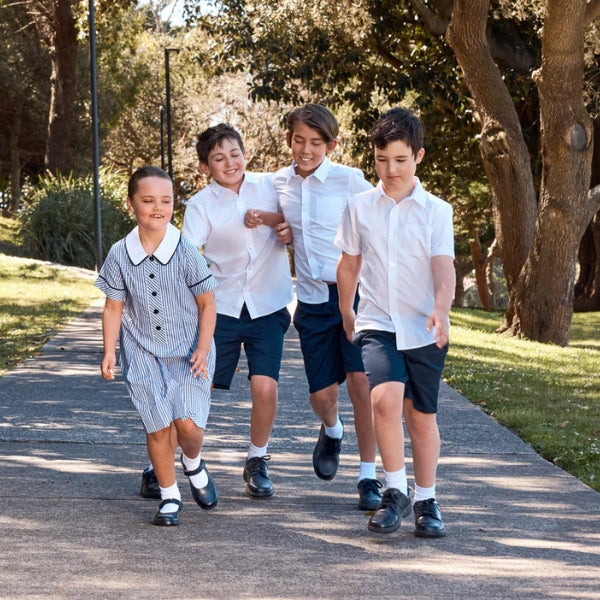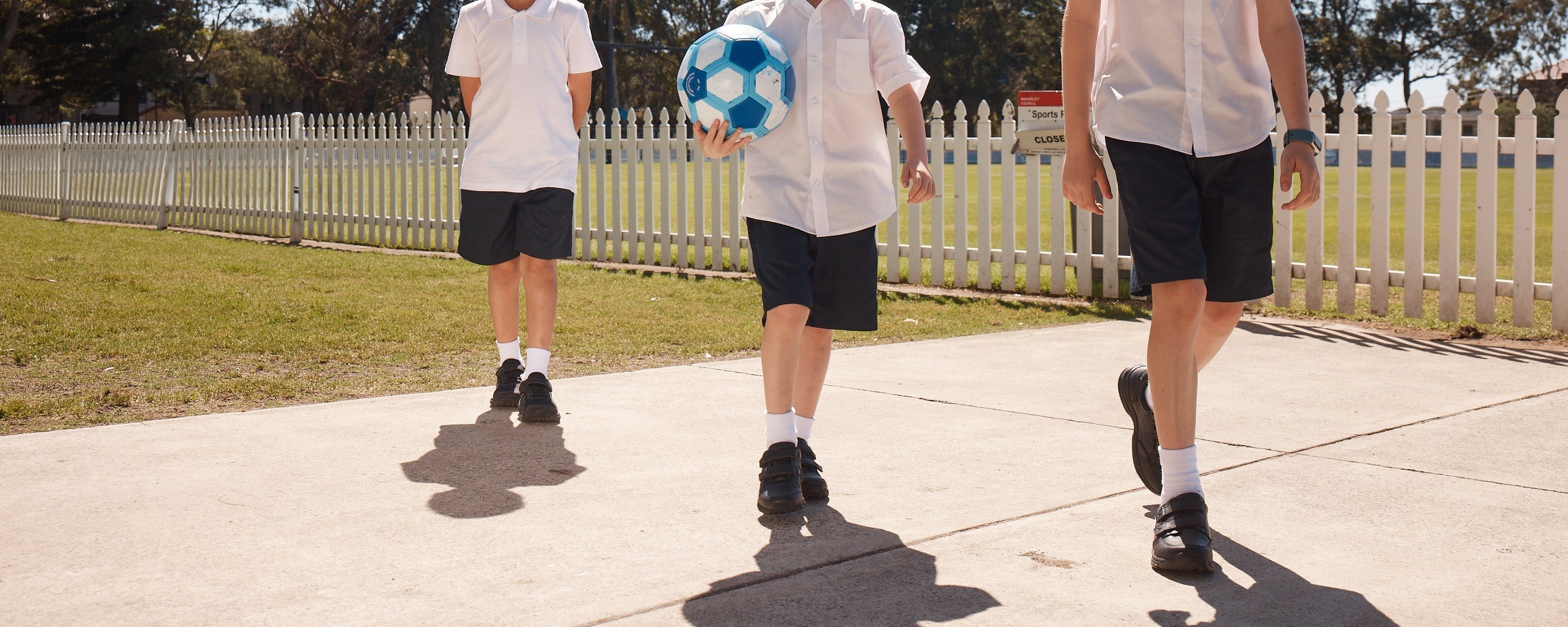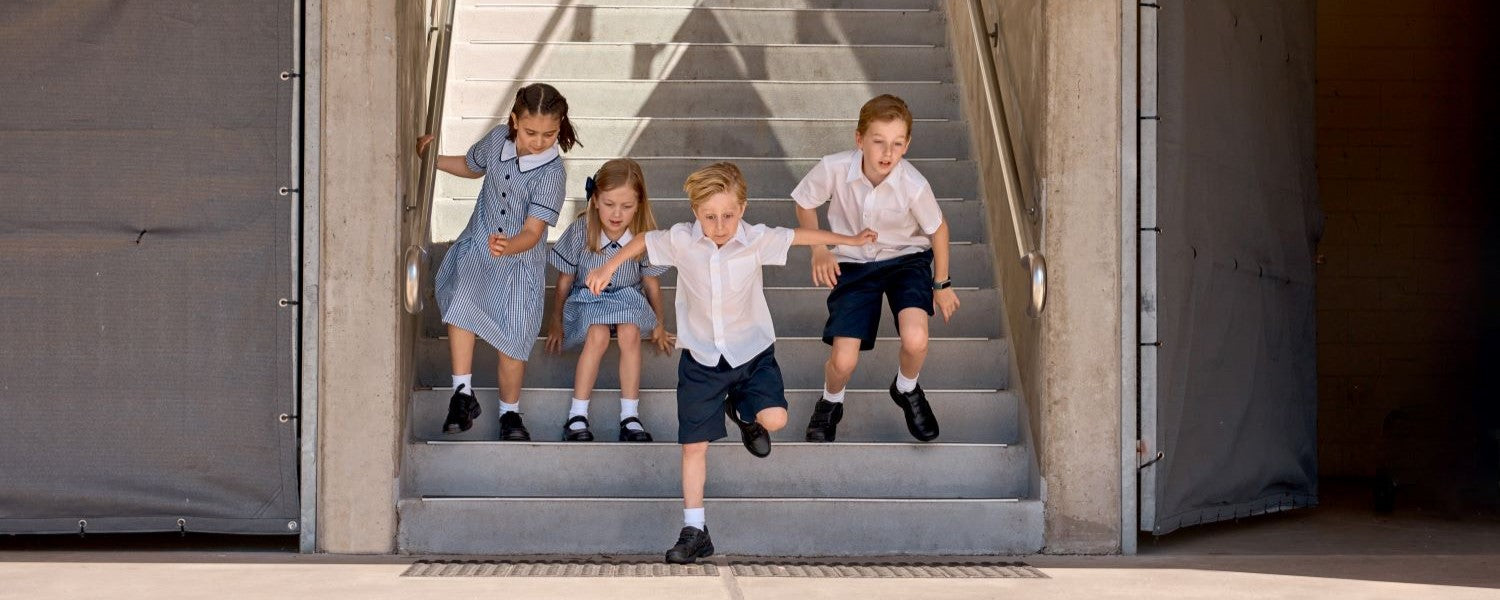
Tips for Getting Your Kids Dressed and Out the Door on Time
No matter how prepared you are, there are just some days that are harder than others when it comes to getting your kid (or kids) out the door and to school on time. Unless you are Mary Poppins of course! Sometimes we have to cut ourselves some slack and realise that parenting doesn’t always go smooth sailing.
When it comes to the school morning (or even night before) there are some things you can do that can help make it go a little more smoothly. We sat down with Nicole Katzenellenbogan, an Occupational Therapist who shares tips for managing the mornings better and actually getting your kid/s out the door on time.
Tips for getting your kids dressed and out the door - on time!
Is it only me or do the minutes in the mornings take quicker than the rest of the day? It often feels as though I am grasping at every second in the morning, trying to get myself and the children ready and out the door on time. There is always so much to do and with busy schedules for everyone, so much to prepare for.
I recently listened to an incredible podcast by Mel Robbins where she spoke about getting ready at night to make the morning easier. As much as I might not feel like doing things at 9:00 at night, it's so much easier to take care of it then and wake up to a day more prepared, than scramble in the morning and start my day in a bit of a stressful state. I have put her words into practice, and I can feel how it has changed the whole energy for myself and the children, and everyone seems to wake up to a more organised home. This sets us up for an easier transition into their school day.
As I often say to parents, many of us start our day by checking our schedules in the calendar. It helps us manage our day or week ahead practically and emotionally. It allows us to mentally prepare for some of the harder tasks or feel a bit relieved with some of the easier ones. We should allow our children the same time to process what is ahead of them and the expectations associated with the day. Is it swimming today? Do they have library class or music to look forward to (or not!), are they prepared for the test ahead or do they have a fun afternoon to look forward to?
Here are some of the tips I took away and have put in place, with some that I’m still very much working on myself.
Weekly schedules
Have a weekly schedule (not more) on the fridge or another high visibility place. For older children, you can have this written up, and for younger children you may wish to use picture cards. At night, go through the schedule with your family so that everyone knows what the day ahead holds. If it is up in the home, everyone can look back to it when they need to. This takes away some of the ‘worry’ of not knowing what the day or week ahead holds.
On this list, or separately, have the children’s weekly schedule including additional activities at school. This is a great daily reminder for you of what to pack or organise for the following day.

Be ready the night before for the next day
There is no reason children can’t help out with this, and it reinforces helping them mentally prepare for the day ahead. This will hopefully help with any meltdowns in the morning coming from “you didn’t tell me!” You could:
- Take out school clothes bearing in mind if they have sports or other activities
- Pack after school activity bags and put them in the car.
- If you are racing between activities all afternoon, pack snacks and water for the car. This can also be done the night before, depending on the snacks.
- Pack the school bag including water bottles, hats, and any additional things such as library books or homework.
- Have a checklist on each activity bag for what needs to go in it. This will minimise the forgotten items such as ballet shoes forgotten at home!
All about the attitude
Prepare your own adult things too! Pack your own lunch and work bag and have them ready at the door. Wake up a few minutes earlier than the kids (I know, I know!) to give yourself some peace and quiet before the day starts so that you have some mental space.
Use visual timers, kitchen clocks or alarms to give everyone a 10 minute warning before you need to be out the door. This helps as a reminder to get going, as opposed to shouting down the house or panicking when it's actually time to go and things are still not done. If you find you are constantly running late, set the clocks around the house 5 minutes forward to get everyone going “on time”.
Where you can, make it fun: first one to be ready gets the privilege of (insert school prep activity here). Focus your attitude beyond ‘reward’ only and towards showing your child that being responsible and on task allows them something they are looking forward to: first choice of books at nighttime, first song choice in the car. Less about bribery (although we often need that too 😊) and more about learning to take responsibility for your own benefit. This is a lifelong skill!
Focus on the positives where you can. Instead of all the negative of ‘I told you to”, or “I already said, why aren’t you listening!” – look at praise for their efforts and achievements. For example, you can say "I noticed how you packed everything away and ready, thank you!" or "You have done a great job getting dressed on your own!" This will boost their self-esteem and make them more willing to cooperate.
Ensure your child is actually focused when giving them an instruction. Instead of calling across the house, likely to gain no response, take the extra few minutes to go to your child, gain their attention and give them an instruction. You could even ask him to repeat this back to you. This means that you are both fully engaged in handing over information that's important at such a busy time of the day. This too will help alleviate the "I didn't hear you” comment which will take up more energy to defend, than having made sure it was heard and understood the first time.
Some days are going to run smoothly, some are not. It’s okay for there to be hurried days and things forgotten. It’s how we react to that. Show your children the emotions of your own frustration (not directed at them) or being silly about forgetting items, and show them what they can do when they have these feelings or circumstances happen. For example, you could say: “Well, that was a rushed morning and I’m feeling a bit frazzled! I’m going to just take a few minutes to calm myself down before I go to …” or “ I was so silly, I forgot your towel for surfing today. I know it's not ideal, but we can make another plan and I’m sure I won’t forget it again after this!”
At the end of the day, we can only be as prepared as we can be and after that we just have to roll with it! Some days are easier than others to do that. Be gracious to yourself and your kids. We are all still learning, and we need to try to shift focus from perfection to growth, support and patience. As long as they are safe, healthy, and happy, that's what matters most.



















